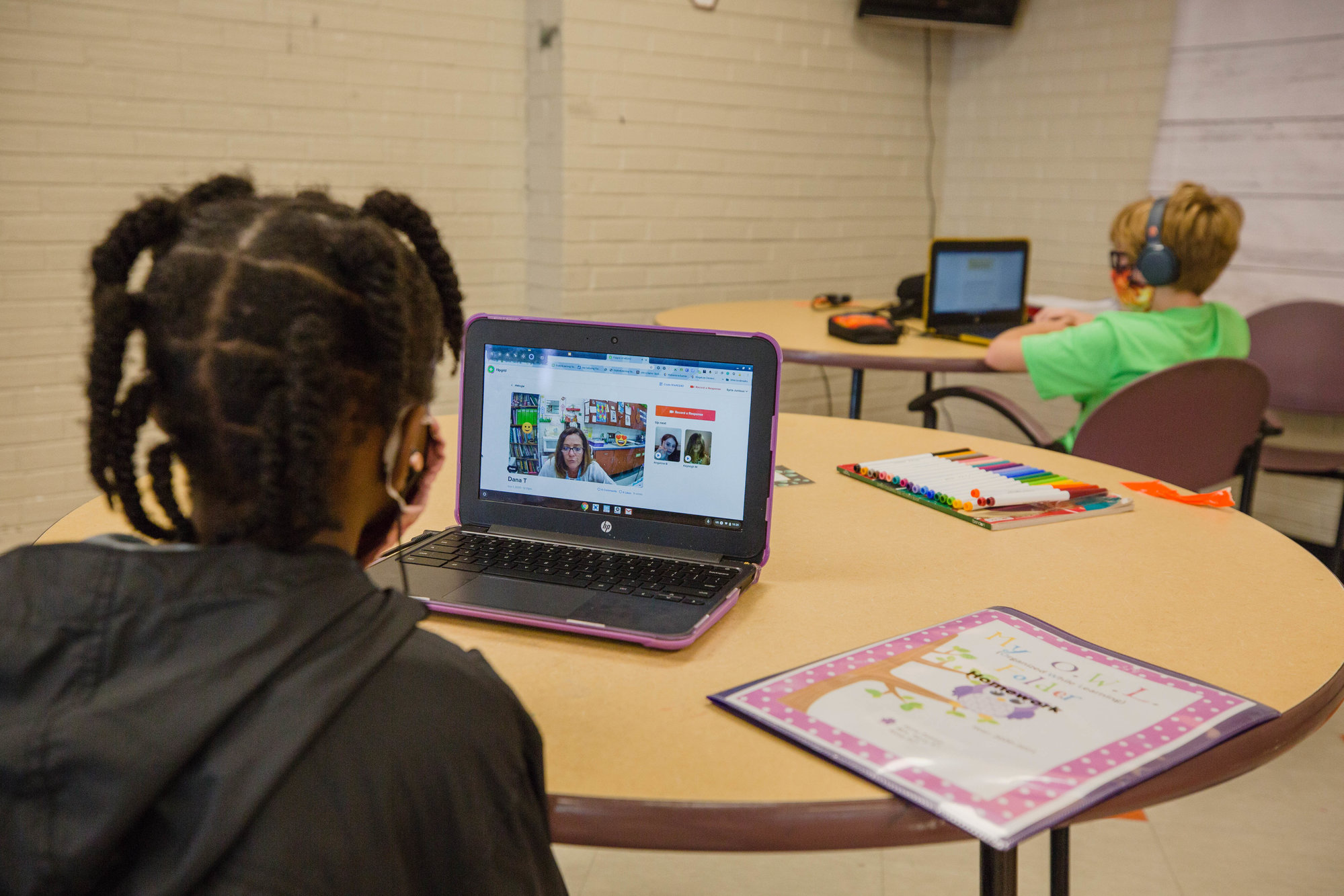Sumter School District officials attribute better fall testing to virtual setting, parent help
Drop in scores seen in December
bruce@theitem.com
As the 2020-21 school year progresses, more and more effects from the COVID-19 pandemic are coming to the surface and causing headaches for parents and educators alike.
Much has been shared on the "COVID-19 slide" in achievement since schools across the nation closed for the final quarter of last school year. Now it appears assessment results this year are being skewed based on whether students took tests remotely at home or in the classroom.
Sumter School District Executive Director of Instruction Jade McLeod and her Office of Academics team updated the full board of trustees on Monday on the district's annual report card presentation from last year and also current year assessment data.
Since the U.S. Department of Education waived all states' spring tests/assessments last year with the initial spread of the coronavirus, the annual report card lacked many achievement accountability percentages and ratings to gauge school and student progress.
This school year, all states and public schools are required to administer pre- and post-assessments to kindergarten through ninth-grade students through the federal CARES Act.
South Carolina is using "formative assessments" to gauge students' progress at three times on the calendar: the beginning of the school year in the fall, a winter benchmark score in December or January, and finally a spring score at the end of the school year.
McLeod and others shared the local district's fall and winter scores on various assessments in math and reading. In the lower grades - especially kindergarten through fourth grade - there is a significant dropoff in students' scores on winter benchmark tests in December as opposed to the initial fall scores. Generally, educators expect a gradual increase in grade-level test scores as a school year progresses with the lowest scores at the beginning of the fall term. This year's math assessment for second-graders, however, showed the student average in the 85th percentile at the beginning of the year then in the 26th percentile in mid-December.
The district's Office of Academics attributes the large drops to the fact that 97% of students who took fall assessments took them in remote learning at home when the district was fully virtual in its instruction.
With the winter assessment in December and the district in a hybrid/blended learning model, 32% of students took the winter assessments in the classroom, and only 68% took them virtually at home.
McLeod and Christine Carnes, a district teaching and learning support specialist, basically attributed the high fall scores to parent assistance. In the virtual testing setting, McLeod said, there are too many factors that the district cannot control.
"It's much harder to control the settings when we don't have students in front of us in testing," she said. "Our students are used to being with us when they are testing and having those environments controlled."
Ryan Brown, chief communications officer with the state Department of Education, said remote testing is an issue for all students who are learning fully virtual. He added that districts are seeing the scoring phenomenon mainly in the lower grades.
"That is definitely one of the caveats that we have to look at with these tests," Brown said. "That is what it is. But, yes, that's a phenomenon that is occurring around the country. We are glad to see parents more involved, but it would be nice if they were not as involved in testing."
S.C. SEEKS ANOTHER WAIVER FROM END-OF-YEAR TESTS
At Monday's board meeting, district administrators also discussed that the state department is seeking another waiver from the U.S. Department of Education this year on end-of-year testing, preferring to report the interim "formative assessments" instead.
Brown also spoke on the waiver request on Thursday.
"The interim formative assessments allow teachers to see along the way how their students are doing," he said. "Teachers prefer them, and they give much better information because with the end-of-year tests, if kids are behind, then there is nothing a teacher can do about it at that point."
Brown estimated about 15 states are proposing to the U.S. Department of Education to use the formative assessments instead of end-of-year testing.
He said that he expects the national agency to decide soon.
BOARD COMMITTEE REPORTS
Finance Committee Chairwoman Sherril Ray brought before the board two committee recommendations, including further board discussion on the feasibility of giving employees bonuses.
On Tuesday, full board Chairwoman Barbara Jackson said that discussion will occur at the trustees' next meeting on Jan. 22.
The other Finance Committee recommendation involved administration potentially identifying any immediate needs for using the balance of a capital projects fund. That matter will also be taken up on Jan. 22, Jackson said.
Transportation Study Ad Hoc Committee Chairman Frank Baker also brought before the full board a recommendation to take up the issue of rezoning and reducing bus ride times with the use of an outside consultant.
Jackson said that discussion with the full board will occur soon, but she could not give a board meeting date at this time.
OTHER MATTERS
In other news, the school board unanimously:
- approved the superintendent's recommendation on the district's personnel report;
- agreed to postpone any action until next month on an energy savings program and associated financing related to a performance contract with Trane Technologies; and
- approved first readings on several new policies, including the South Carolina School Boards Association Policy and Legislative Manual update.
More Articles to Read

